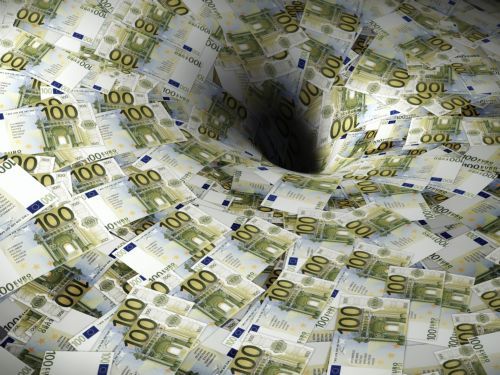For five years, Europe΄s common-currency bloc has squabbled over whether the solution to its economic crisis lies in slimming the state and deregulating markets, or in more expansionary fiscal and monetary policies.
The battle lines just got messier, the way out even less clear.
Since the start of the eurozone΄s debt crisis, the bloc΄s wealthier countries–led by Germany–have largely prevailed in pushing economic overhauls, not stimulus, as the main way to nurse indebted nations to financial health. Now, eurozone voters are in open revolt against such fiscal strictures, while the European Central Bank just overthrew German monetary orthodoxy.
Sunday΄s historic victory for the radical left-wing Syriza party in Greece΄s elections is likely to embolden populist movements in other eurozone countries, including Spain, France and Italy, which reject German-sponsored austerity.
Their growth on both the left and right of Europe΄s political spectrum suggests the breadth and complexity of voter discontent. Spain΄s far-left Podemos party has surged in opinion polls, and elections are due late this year. France΄s far-right National Front is roiling the country΄s establishment with attacks on austerity as well as immigration. Italy΄s populist, euroskeptic Five Star Movement wants to renegotiate the national debt.
Greece is the most extreme example of the fraying of support for the mainstream center-right and center-left parties that have dominated Western European politics for decades. The antiestablishment surge comes amid the Continent΄s longest economic slump since the Great Depression.
Meanwhile the ECB΄s decision on Thursday to buy eurozone government bonds and other assets to stimulate growth and inflation broke with Germany΄s deeply held belief that central banks shouldn΄t print money to buy public debt.
The ECB used to back Germany loudly on the benefits of austerity, before suggesting last fall that the eurozone overall had become too austere and that Germany should spend more. Lately, ECB head Mario Draghi has avoided provoking Berlin on fiscal policy while also antagonizing it with his bond-buying program.
The bank and Berlin agree on one thing: the need for market-friendly overhauls to make eurozone economies more flexible. Yet those overhauls are harder than ever to sell to voters.
The three-way standoff between Germany, the ECB, and angry voters in Southern Europe is likely to resonate throughout 2015 in the eurozone, which lags behind the rest of the world in recovering from the global financial crisis.
International economists say the eurozone needs a judicious mix of all of the above: monetary stimulus to avoid deflation, deficit-cutting by debtor countries, higher spending by creditor countries, and broad economic overhauls in many nations to lift long-term prospects.
Some European policy makers say the bloc needs a grand bargain that delivers all of those elements. Instead, the divisions between the different camps on monetary policy, fiscal policy and structural changes have become increasingly entrenched and ideological.
A shouting match, rather than a grand bargain, threatens to prolong the agony of slow recovery and high unemployment.
“If we do not manage to get more growth, the impatience that we see in a number of societies will build up, with political repercussions that we cannot control,” said Paul De Grauwe, professor of European political economy at the London School of Economics.
Some analysts say the ECB΄s new program of asset purchases or “quantitative easing” will make only a small difference to European growth and inflation on its own, without other measures to boost domestic demand in countries such as Germany.
But calls from abroad for Germany to increase its meager public investment have become so routine that Berlin officials barely react to them. Chancellor Angela Merkel doubled down on Germany΄s stance in a speech at the World Economic Forum in Davos on Thursday, saying Europe΄s demographic challenges require lower public debts and more-competitive markets. “We have lost a lot of time,” she said.
Ms. Merkel said the ECB΄s decision “must not distract” from the need for structural reforms–a diplomatic way of conveying the widespread angst in Berlin that monetary stimulus does, in fact, take the pressure off countries such as Italy and France to overhaul their economies.
Germany has come to judge Europe΄s monetary and fiscal policies first and foremost by whether they raise or relax the pressure on Southern European countries to enact unpopular reforms. Senior German officials predict the ECB΄s bond-purchasing program will fail to boost inflation, but risks letting other countries off the reform hook.
That German perspective is seen as punitive in crisis-hit countries, where years of depressed economic activity are eroding investment, jobless people΄s employability, and companies΄ survival–weakening long-term prosperity as well as nations΄ ability to pay down high debts.
Syriza΄s march to victory has been cheered for weeks by many on Europe΄s left and right who never had much faith in Germany΄s prescription, and have lost trust in European Union institutions that can΄t seem to find a better one.
Hopes that Syriza΄s win can trigger a political and economic shift across Europe are likely to founder on cold facts: Greece is small, lacks allies, and faces bankruptcy without rescue funds that Berlin can block.
Berlin officials fear that relaxing Greek austerity would send the wrong signal to France and Italy–and that it would play into the hands of Germany΄s own populist upstart party, Alternative für Deutschland, which opposes eurozone bailouts and thinks Ms. Merkel has already provided too much largess in Europe.
Greece will face intense pressure in coming weeks to stay the course of austerity and overhauls, if it wants to stay in the euro.
Ms. Merkel΄s economic medicine, with its focus on Europe΄s long-term prospects in a fast-changing global economy, could show benefits eventually, economists say. The problem, they add, is that meanwhile, Europe is staring at a lost decade.
“The question is, are people patient enough,” Mr. De Grauwe said.





